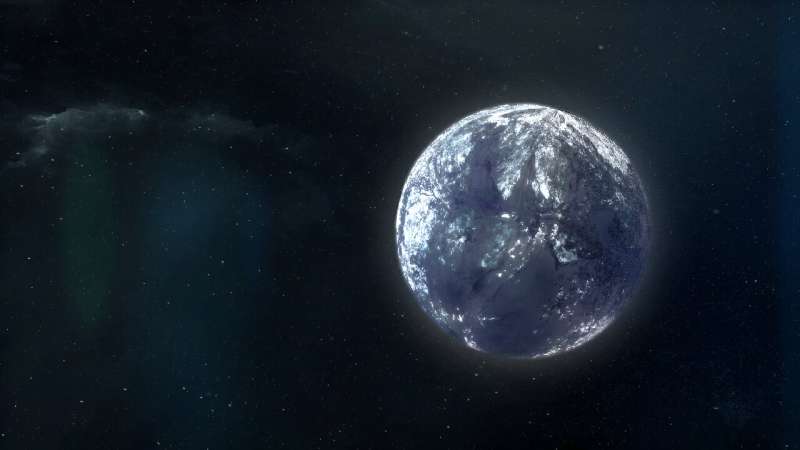A NASA handout illustration shows an ice-encrusted, Earth-mass planet. Scientists estimate there could be trillions of rogue planets in the Milky Way — and there is a chance some could host life.
The Euclid space telescope has discovered seven more rogue planets, shining a light on the dark and lonely worlds floating freely through the universe untethered to any star.
Without being bound to a star, as the Earth is to the sun, there are no days or years on these planets, which languish in perpetual night.
Yet scientists believe there is a chance they could be able to host life—and estimate there may be trillions dotted throughout the Milky Way.
Last week the European Space Agency released the Euclid telescope’s first scientific results since the mission launched in July.
Among the discoveries were seven new free-floating planets, gas giants at least four times the mass of Jupiter.
They were spotted in the Orion Nebula, the nearest star-forming region to Earth, roughly 1,500 light years away.
2024-05-29 02:51:02
Original from phys.org
